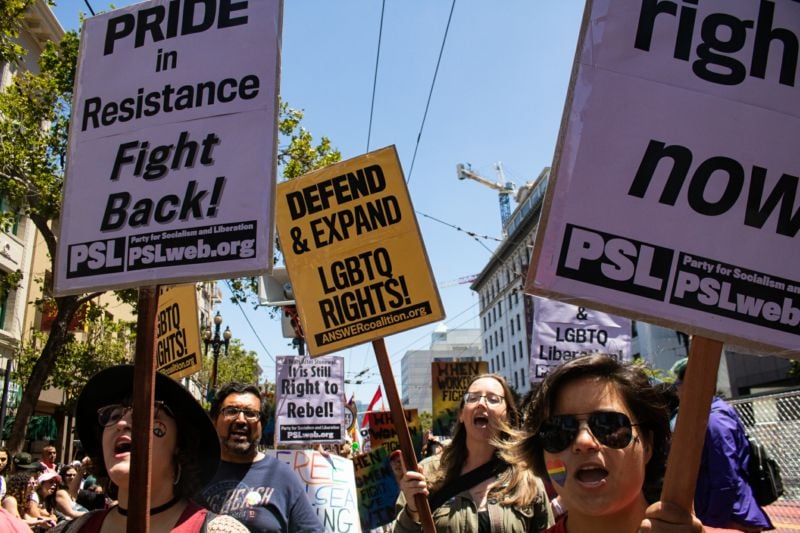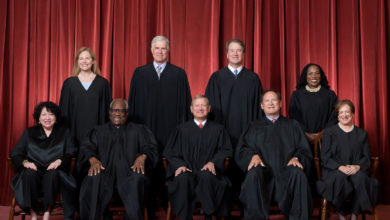A Supreme Court decision on two voter suppression laws in Arizona further gutted the historic Voting Rights Act of 1965, a key concession won by the Civil Rights Movement. The two state laws upheld by the court’s 6-3 ruling on July 1 ban anyone other than a relative or caregiver from collecting absentee ballots and nullifies any ballots mistakenly cast by a voter in the wrong precinct.
The laws were initially struck down as discriminatory by the 9th Circuit Court of Appeals. Ultra-reactionary Supreme Court Justice Samuel Alito, however, wrote in the opinion overruling the Appeals Court that “the mere fact there is some disparity in impact does not necessarily mean that a system is not equally open or does not give everyone an equal opportunity to vote.” In other words, the right wing majority on the Supreme Court was even willing to accept that there was “disparity in impact” caused by the voter suppression laws, but that that “mere fact” was insufficient to strike them down!
And in fact polls and voting statistics clearly show that such legislation has far from a small effect on people of color and low-income voters. This is true generally as well as specifically for the two laws challenged before the Supreme Court. As the 9th Circuit Court of Appeals found, the Arizona law disproportionately burdened people of color with additional obstacles to voting. For example, without ballot collectors on Native reservations like the Navajo Nation or other areas where transportation is difficult, many people will inevitably stay away from the polls.
This decision aimed at infringing on the right of the working class and oppressed people to vote is one in a long line of reactionary rulings on the issue in recent years. This is not the first time the Supreme Court stuck down key provisions of the Voting Rights Act of 1965. A 5-4 ruling in 2013 nullified the section of the law that required states with a history of racist voter suppression to receive federal authorization for any significant changes to voting procedures. This opened the floodgates to an avalanche of new restrictive measures concentrated in states where Black residents were subjected to Jim Crow apartheid rule.
But there is an immediately achievable way for people to fight back and reverse these attacks by the Supreme Court and racist, anti-worker state authorities. Congress is currently considering a bill called the For the People Act. If passed, the law would dramatically expand voting rights nationwide and effectively undo state-level voter suppression measures by creating a federal set of standards making it easier to vote.
This could be passed by Congress without a single Republican vote. But to unlock that possibility, Democrats in the Senate need to abolish the undemocratic “filibuster” requiring that measures are passed with 60 rather than 50 votes. Protecting something as fundamental as the right to vote must be prioritized above any desire for “bipartisan” harmony among different factions of the elite.





